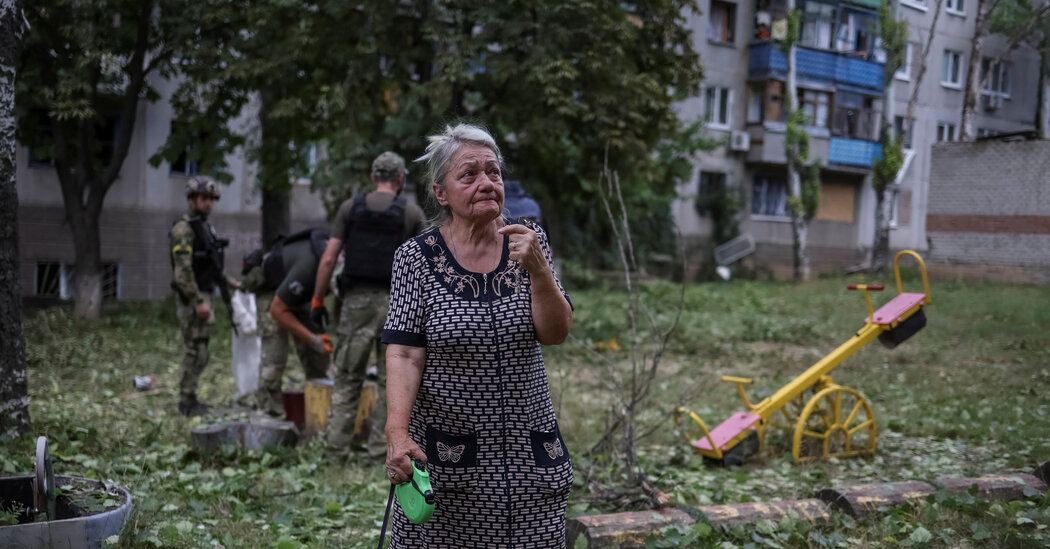
BRUSSELS — To avoid energy shortages that would stall economic growth and leave households cold in the winter as Russia weaponizes its gas exports, European countries should immediately start rationing use of the fuel, the European Commission said on Wednesday, and cut their use 15 percent until next spring.
If the bloc’s 27 member countries agree to adopt the plan and the new legislation that goes with it, it would solidify the sense that Europe’s economy is on war footing because of Russia’s invasion of Ukraine. The proposal would grant the Commission, the bloc’s executive arm, powers to force member nations to follow a strict plan of energy consumption cuts as of this summer.
“Months before the war broke out, Russia kept gas supply intentionally as low as possible despite the high gas prices,” the Commission president, Ursula von der Leyen, told the news media on Wednesday.
“Russia is blackmailing us. Russia is using energy as a weapon,” she said.
Public opinion is split over whether supporting Ukraine is worth the sacrifice, with some people saying they are ready to take a bigger hit to keep up resistance to Russia and others saying the war would hurt them more than they are willing to accept.
Europeans, especially those living in the bloc’s wealthiest regions in the north and west, are among the world’s richest people on average, and are not accustomed to hardships like keeping houses cold in the winter.
Still, European fatigue with the war may be overstated. A poll in Germany last week found that only 22 percent wanted their government to curb support to Ukraine to bring down energy prices; 70 percent of respondents said they wanted the German government to continue strongly backing Ukraine despite the economic fallout.
The European Commission needs the backing of national governments to forge ahead with the plan, and the bloc’s energy ministers are set to meet in Brussels on Tuesday to debate and refine the measures.
“I know this is a big ask for the whole of the EUropean Union but it’s necessary to protect us,” Ms. von der Leyen said.
With Russia having slashed or completely cut gas supply to a dozen E.U. countries already, and the looming threat that it will not fully reconnect a key pipeline on Thursday that has been offline for maintenance, the bloc’s alternatives are scarce. President Vladimir V. Putin of Russia suggested late Tuesday that natural gas would resume flowing to Europe through the pipeline, but warned that supplies may be severely curtailed.
The Commission said that gas deliveries to Europe had been volatile and that gas storage facilities, which are normally almost full at this point in the year in anticipation of winter, were not sufficiently stocked to deal with the disruptions.
“We have to prepare for a potential full disruption of Russian gas and this is a likely scenario,” Ms. von der Leyen said.
Experts say that, along with E.U. efforts to line up new suppliers, cutting demand for gas is the only way to survive relatively unscathed this winter.
Simone Tagliapietra, an expert at the Bruegel think tank in Brussels, said that the European Commission plan “goes in the right direction,” but he warned that a lot hinges on clear and honest communication between governments and Europeans.
“This requires serious and straightforward communication to the public,” he said. Governments must ask people to consume less and should have the courage to tell their citizens that Europe is in the midst of what possibly represents the greatest energy crisis in its history.”




